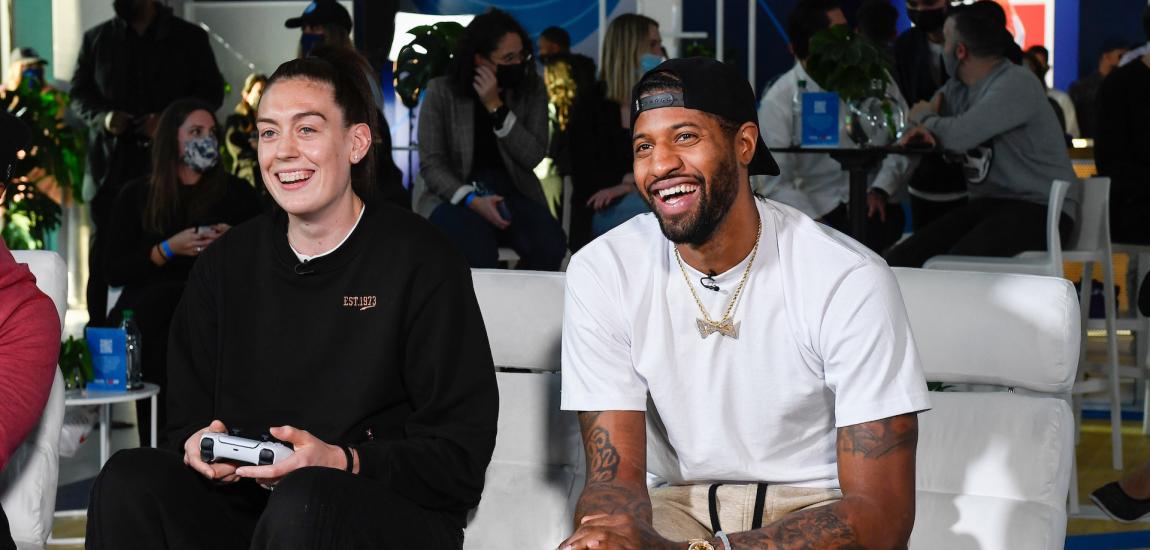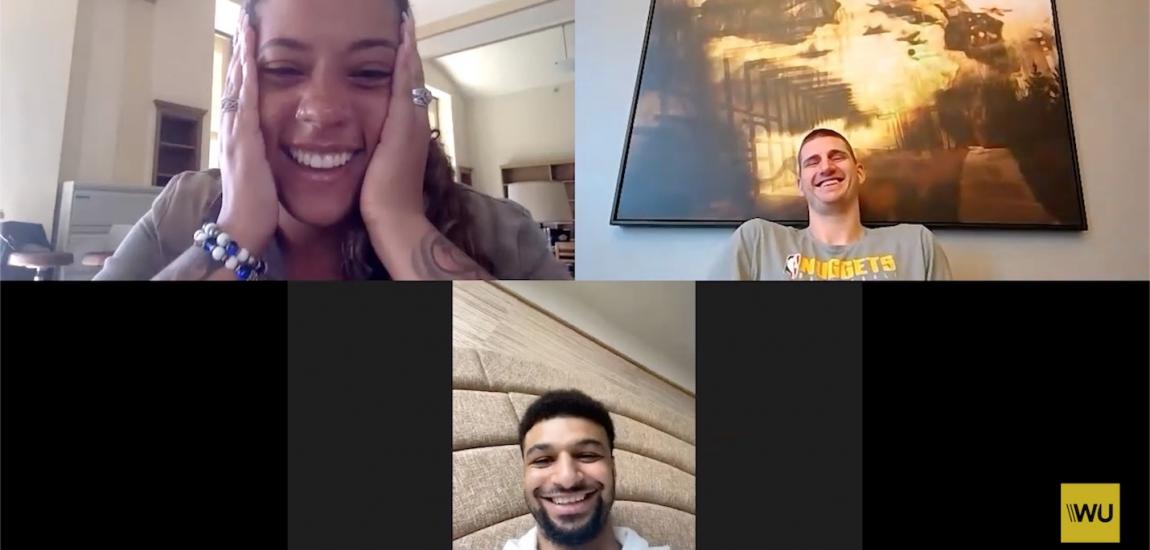Big money, high expectations and disappointment. Throughout NBA history you can spot the corpses of teams whose demise was linked to a free agent signing that never panned out.
Signing the right guy can send a struggling team to the NBA Finals while acquiring the wrong guy can cripple a franchise for years. In this new era of $100-plus million contracts, teams are betting their future on the ability to discern the valuable assets from the pretenders. The guys below fall into the latter category, and a few of them have become the most vilified athletes in the history of basketball, leaving fired general managers, broken franchises and rampant regret in their expensive wake.
NBA's 12 Worst Contracts Of The 21st Century

Brian Grant: 7 years, $86 million (2000 Heat)
Unlike many of the players on this list, Brian Grant didn’t do anything special to turn his max-contract into a flop. The reason why he is here is because he didn’t do anything special throughout his entire 11-year career. Grant finished the 1999-2000 season with an uninspiring averages of 7.3 points and 5.5 rebounds in Portland. But that was enough for Miami GM Pat Riley to sign Grant to a seven-year, $86 million max deal.

Brian Grant: 7 years, $86 million (2000 Heat)
Grant went on to have a solid career, putting up backup power forward numbers while making over $12 million a year. Riley made up for his blunder by including Grant in the 2004 trade to the Lakers for Shaquille O'Neal.

Kenyon Martin: 7 years, $92.5 million (2004 Nuggets)
Kenyon Martin is just another case of a role player being paid like a max guy due to a shallow free-agency pool. A Nuggets team desperate to put talent around a young Carmelo Anthony binged on an injury-prone Kenyon Martin during the summer of 2004. One warning sign was that Martin had fractured both of his legs in consecutive years. Another was that he had never played all 82 games in a single season.

Kenyon Martin: 7 years, $92.5 million (2004 Nuggets)
K-Mart’s injury woes continued in Denver, causing him to miss more than a third of his games over the span of his contract. When Martin was healthy, his production on the court was serviceable (career averages of 13 points, 8 rebounds) but nowhere near the $92.5 million that they paid for him.

Amar'e Stoudemire: 5 years, $99 million (2010 Knicks)
"Why isn't Amar’e higher up on the list?" all of you bitter Knicks fans out there must be wondering. Amar'e has been a disappointment in New York by all accounts, which stems from chronic injuries and inability to form any sort of chemistry with Carmelo Anthony. In his first season at the Garden in 2010, Amar’e averaged a stellar 25-3-8 in 78 games. Since? He's suited up for less 76 games the past two seasons and averaged just 14.2 points and 5 rebounds.

Amar'e Stoudemire: 5 years, $99 million (2010 Knicks)
Mike D’Antoni is the real culprit behind Amar’e’s health issues, running the power forward’s knees to the brink of extinction in Phoenix and then following him to MSG to finish hacking away what was left of them in New York. But Stoudemire has two more years on his deal, so there’s still time for him to play his way off of this list (or limp his way up a few spots, depending on who you ask).

Ben Wallace: 4 years, $60 million (2006 Bulls)
Ben Wallace was once one of the fiercest defenders in the NBA, a relentless rebounder who helped will the Pistons to the 2004 NBA championship ... but it wasn’t when the Bulls signed the 33-year old center to a 4-year, $60 million deal in 2006. Wallace had just exited his prime and Chicago was desperate for a low post presence to fill the void that Tyson Chandler left when he signed with the Hornets.

Ben Wallace: 4 years, $60 million (2006 Bulls)
However, an aging Wallace couldn’t live up to those expectations. He averaged a stellar 10 rebounds and a not-so-stellar 5.9 points in just one and a half seasons for the Bulls before he was sent to Cleveland so that the Bulls could acquire fellow contract bust Larry Hughes.

Eddy Curry: 6 years, $56 million (2005 Knicks)
It would be too easy to make an Eddy Curry fat joke, but his buffet-mously bad contract was one of many putrid signings during the Isiah Thomas Era, or The Great Depression, as many Knicks fans have come to call it. Many forget that Curry actually had a great season to start his contract, dropping almost 20 points and grabbing 7 rebounds a night in 81 games of the 2006-07 season. Everything went downhill from there.

Eddy Curry: 6 years, $56 million (2005 Knicks)
Curry's production markedly dropped during the 2007-08 season, averaging just 13 points and five rebounds. From there it got downright embarrassing. The following two seasons, Curry played just 10 games combined and on the bench, Curry’s weight ballooned like that girl who ate the blueberry in Willy Wonka, and he never played another game in a Knicks uniform again.

Larry Hughes: 5 years, $70 million (2006 Cavaliers)
In perhaps the greatest jump in performance during a contract year in the history of the NBA, Larry Hughes averaged 22-5-6 and a league-leading three steals per game during the 2004-05 season. To offer some perspective, in the previous three seasons, the 6-5 shooting guard averaged 14-3-4 and just over one steal per game.

Larry Hughes: 5 years, $70 million (2006 Cavaliers)
Despite his track record, Hughes duped the Cleveland Cavaliers into paying him big money to the tune of 5 years for $70 million. Predictably, Hughes didn’t live up to his mega-deal, putting up 14-3-4 in just three seasons in Cleveland before being traded.

Rashard Lewis: 6 years, $118 million (2007 Magic)
In 2007, you could have made the case Rashard Lewis was a perfect third banana to help a team jump from perennial second-round playoff exits to a championship. Lewis' averages of 22.4 points and 6.6 rebounds in the final year of his Seattle contract in 2006-07 reaffirmed that notion. Magic GM John Weisbrod bet the house on Lewis with a six-year, $118 million deal that made the 27-year-old forward the second highest paid player in the league.

Rashard Lewis: 6 years, $118 million (2007 Magic)
Lewis was an asset in the early years of his deal, becoming Orlando's second leading scorer behind Dwight Howard and helping the team reach the 2009 NBA Finals. Then Lewis' numbers dropped off (16.3 points, 5.1 rebounds), and the team traded him in the middle of the 2010-11 season. From here it just gets ugly. In the final three years of his contract, Lewis bounced from Washington to Miami as a glorified role player, making $20-plus million to come off the bench and score six points a game.

Jerome James: 5 years, $30 million (2005 Knicks)
To make this list with just a $30 million contract, you either have to be injured to the point of being treated like Bubble Boy, or be so insignificant that the team could put you in a bubble and it wouldn’t affect your production. James was the latter. Isiah Thomas was impressed by James' performance in the Sonics' 2005 playoff run in which he averaged 12.5 points and 6.8 boards in 11 games so much so that he disregarded his regular-season stats of 4.9 points and 3.0 rebounds.

Jerome James: 5 years, $30 million (2005 Knicks)
James was a disappointment the day he arrived in New York, showing up out of shape and averaging just 9 minutes and 3 points in his first season. But James didn’t stop there. In 2007-08 and 2008-09, James played a combined 15 minutes in four games, which translates to him making about $787,000 per minute, roughly $780,000 more than Bill Gates who make approximately $6,736 per minute. The disappointing center is shown above twerking over fallen 76er Andre Miller.

Grant Hill: 7 years, $93 million (2000 Magic)
If Grant Hill had stayed healthy, it could’ve changed the landscape of basketball as we know it. During the summer of 2000, the Orlando Magic made two blockbuster acquisitions, stealing Tracy McGrady away from Toronto and luring Hill from Detroit with a seven-year, $93 million contract. McGrady thrived in Orlando, averaging more than 25 points in each of his first four seasons, highlighted by his 2002-03 season in which he averaged a stunning 32-7-6. Hill, on the other hand, could barely get off the bench.

Grant Hill: 7 years, $93 million (2000 Magic)
The sensational small forward out of Duke averaged 22-6-8 in his first six seasons with the Pistons, but in Orlando, Hill was plagued by constant ankle injuries that limited him to only four games in his first season with the Magic, 14 games in his second and 29 in his third. During the span of his seven-year contract Hill played in just 200 of a possible 574 games (not including playoffs), and suited up for less than 30 games in four of those seven seasons.

Allan Houston: 6 years, $100 million (2001 Knicks)
One of the greatest Knicks of the late-1990’s, Allan Houston was awarded a max extension by the team in 2001, securing Houston in orange and blue for six more years and $100 million. However, like many players on this list, Houston couldn’t stay healthy. He was crippled by knee injuries just two years into his extension and played in only 70 games combined from 2003 to 2005.

Allan Houston: 6 years, $100 million (2001 Knicks)
Houston retired after the 2004-05 season in which he only played 20 games, and collected the remaining $40 million on his contract without stepping onto the court once. To add insult to injury, the league changed its salary cap rules because of him. The NBA’s most recent Collective Bargaining Agreement created the Amnesty Clause (dubbed the “Allan Houston Rule”), which allows teams to choose one player whose contract, will not count toward the team’s luxury tax.

Stephon Marbury: 4 years, $76 million (2004 Knicks)
The most infamous acquisition of the Isiah Thomas Era in New York was the train-wreck known as Stephon Marbury. Phoenix made the initial blunder of giving him a four-year, $76 million extension in 2003. Thomas came to the Suns' rescue with a trade right before the extension kicked in. Marbury was a phenomenal talent, but the accompanying circus overshadowed his greatness. He averaged 21.0 points and 8.6 assists his first two years in the Big Apple, but then embarked on a notorious demise.

Stephon Marbury: 4 years, $76 million (2004 Knicks)
The moody point guard began feuds with coaches Larry Brown, Thomas and Mike D’Antoni over almost anything, which ultimately led to the firing of both Brown and Thomas. Finally, the Knicks had enough of his antics and on Dec. 1, 2008, the organization banned him from all team facilities for the rest of his contract. Marbury’s legacy with the Knicks is three different coaches, a 144-266 record and $76 million wasted.

Gilbert Arenas: 6 years, $111 million (2008 Wizards)
Gilbert Arenas sits atop the throne of wasted money for Worst Contract of the 21st Century, encircled by a moat of the tears of Wizards fans. Arenas was once one of the NBA's most prolific scorers, averaging 27.3 points in four seasons leading up to his max contract extension (six years and $111 million). After missing almost the entire 2008-09 season with various injuries, Arenas returned in 2009-10 only to be suspended indefinitely by the NBA for bringing firearms into the locker room.

Gilbert Arenas: 6 years, $111 million (2008 Wizards)
Arenas’ injury problems coupled with his suspension debilitated the Wizards, who had a league-worst 45-119 record from 2008 to 2010. Police investigations left an indelible stain on the franchise's public image. Arenas played a total of 47 games for the Wizards before being traded to Orlando, making him almost as reviled in Washington as Isiah Thomas is in New York.
-
Related
 WNBA Star Breanna Stewart Talks NBA 2K22, Her Sneaker Game And Becoming A Mom
WNBA Star Breanna Stewart Talks NBA 2K22, Her Sneaker Game And Becoming A Mom -
Related
 Denver Educator's Inspiring Work With Black Youth Catches Attention Of Jamal Murray, Nikola Jokic
Denver Educator's Inspiring Work With Black Youth Catches Attention Of Jamal Murray, Nikola Jokic -
Related
 After Doctors Save Coach's Life From Covid, Players Pay It Forward -- And Earn Special Surprise
After Doctors Save Coach's Life From Covid, Players Pay It Forward -- And Earn Special Surprise -
Related
 'Space Jam: A New Legacy' Has Something For Everyone
'Space Jam: A New Legacy' Has Something For Everyone

